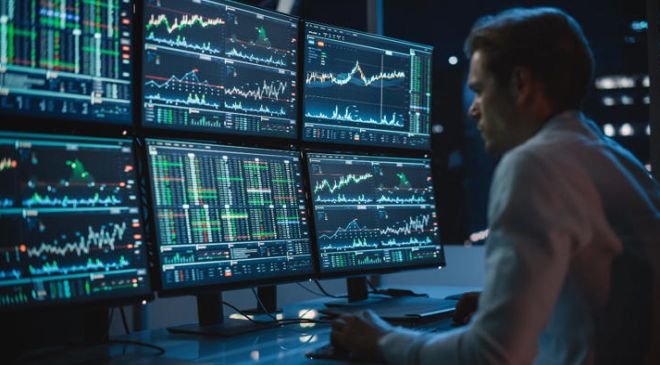Telsa (NASDAQ: TSLA) shares have advanced 77% year to date, more than tripling the 23% return in the S&P 500 (SNPINDEX: ^GSPC). But Microsoft (NASDAQ: MSFT) shares have advanced 16% year to date, underperforming the benchmark index by a wide margin.
Billionaire Philippe Laffont apparently favors the underperformer. His hedge fund, Coatue Management, sold 1.8 million shares of Tesla through the first three quarters of 2024, reducing its stake by 45%. Meanwhile, Coatue bought 40,925 shares of Microsoft, increasing its position by 1%. Microsoft is now the fourth-largest holding, while Tesla ranks sixteenth.
Read More:-US Congress has two days to avert shutdown after Trump rejects spending bill
Tesla: The stock Coatue Management has been selling
The near-term investment thesis for Tesla centers on its launch of more affordable electric cars in the first half of 2025, and the projected acceleration in vehicle deliveries. The company lost about 3 percentage points of market share year to date through October, but a sub-$30,000 vehicle, coupled with falling interest rates, could lead to faster sales growth and market share gains next year.
Read More:-Google’s new AI tool uses image prompts instead of text
Indeed, CEO Elon Musk says vehicle deliveries could increase 20% to 30% in 2025. That would be a significant improvement from the 2% decline year to date in 2024. Additionally, gross profit margin expanded to 19.8% in the third quarter, the highest level since 2022. That momentum may carry into next year as lower interest rates support higher prices, and Tesla continues to improve its manufacturing technology.
The long-term investment thesis for Tesla centers on its shift toward artificial intelligence (AI) software and services. Like Apple monetizes its iPhones with App Store downloads and other adjacent products, Tesla plans to monetize its electric cars with full self-driving (FSD) software. The company also plans to launch an autonomous ride-hailing service.
Read More:-5 family members found dead at Utah home and 17-year-old hospitalized with gunshot wound
That evolution will change Tesla’s profitability profile. FSD software will create a recurring revenue stream that may far exceed the initial sales price of the vehicle, according to John Murphy at Bank of America. And CEO Elon Musk estimates that autonomous driving technology could eventually push Tesla’s gross margin to 70%.
Putting a timeline on FSD and autonomous ride-hailing services is difficult because the technology is still in development. Tesla will release an unsupervised version of FSD in California and Texas next year, and it plans to launch a ride-hailing service in those states (and potentially others). However, it will take time for those businesses to scale, so the current valuation look outrageous.
Specifically, the stock currently trades at 185 times adjusted earnings. That multiple is hard to justify for a company projected to grow adjusted earnings 29% in the next 12 months. I see Tesla as a great company well positioned to revolutionize the transportation and mobility industries. But I also think the stock has gotten ahead of itself. Prospective investors should wait for a better entry point.
Read More:-Trump says he’ll end daylight saving time: Here are the winners and losers if he does
Microsoft: The stock Coatue Management has been buying
The investment thesis for Microsoft focuses on strength in enterprise software and public cloud services, especially as it allows the company to monetize artificial intelligence. To elaborate, Microsoft is the market leader in software sales due to strength in office productivity and enterprise resource planning. And Microsoft Azure is the second largest public cloud as measured by infrastructure and platform services spending.
Microsoft has added generative AI assistants to its Microsoft 365 and Dynamics software platforms. The company has not discussed revenue figures, but early adoption has been relatively encouraging. CEO Satya Nadella on the third-quarter earnings call said, “Nearly 70% of the Fortune 500 use Microsoft 365 Copilot, and customers continue to adopt it at a faster rate than any other new Microsoft 365 suite.”
Read More:-Oil tanker ‘splits in half’ after ship runs aground in stormy weather
Microsoft has a distinct advantage in its relationship with OpenAI, the creator of ChatGPT. Azure is the only public cloud that lets businesses use OpenAI models to build custom generative AI applications. Additionally, AI contributed about 12 percentage points to Azure revenue growth in the third quarter. But Microsoft still lost 3 percentage points of market share sequentially, according to Synergy Research.
Currently, shares trade at 36 times earnings, a premium to the three-year average of 32 times earnings. That multiple is difficult to justify when Wall Street anticipates 9% earnings growth in the next year. Having said that, Microsoft is entitled to a portion of OpenAI’s profits once the AI start-up reaches profitability, which is projected to happen in 2029. That makes the current valuation multiple more tolerable.
Personally, I think better buying opportunities will arise in the coming months for both Tesla and Microsoft. But if I had to choose between the two stocks at their current prices, I would choose Microsoft.
Don’t miss this second chance at a potentially lucrative opportunity
Read More:-US President Trump confirms Bitcoin reserve plans as Russia hints at crypto cold war
Ever feel like you missed the boat in buying the most successful stocks? Then you’ll want to hear this.
On rare occasions, our expert team of analysts issues a “Double Down” stock recommendation for companies that they think are about to pop. If you’re worried you’ve already missed your chance to invest, now is the best time to buy before it’s too late. And the numbers speak for themselves:
- Nvidia: if you invested $1,000 when we doubled down in 2009, you’d have $334,266!*
- Apple: if you invested $1,000 when we doubled down in 2008, you’d have $46,976!*
- Netflix: if you invested $1,000 when we doubled down in 2004, you’d have $479,727!*
Right now, we’re issuing “Double Down” alerts for three incredible companies, and there may not be another chance like this anytime soon.





































